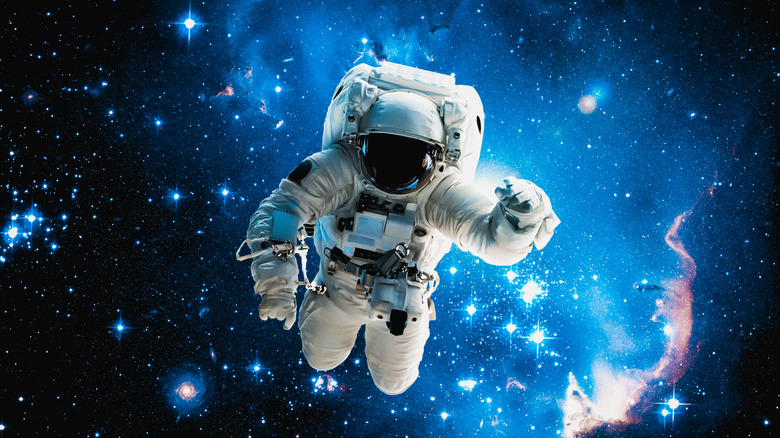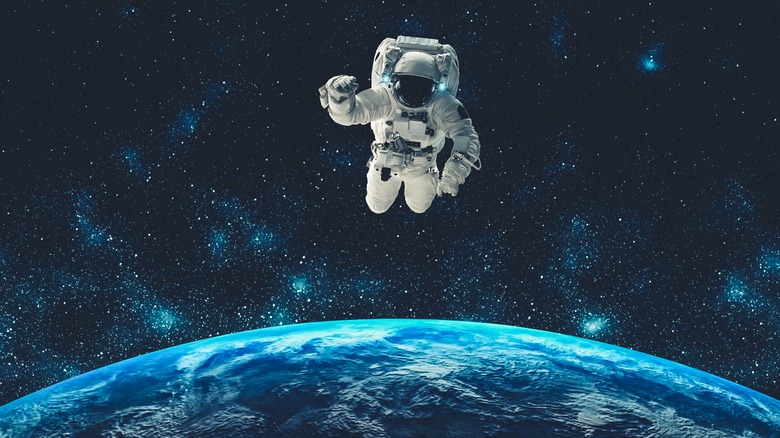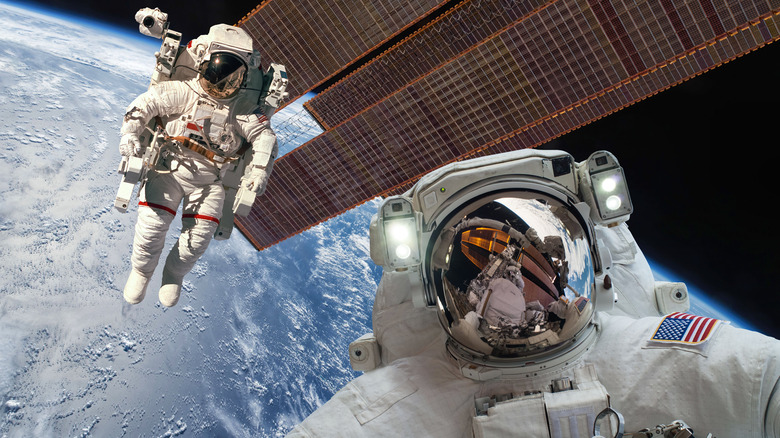The Reason Why International Astronauts Are Required To Learn Russian
Astronauts are truly revered people. It is, of course, the fondest ambition of so many children to join their ranks. In 2019, in fact, the Lego company conducted a survey (per CNBC) of 3,000 8-to-12-year olds, and 11% of them stated they wanted to be astronauts when they grew up.
The allure of being an astronaut is surely lost on nobody. It's the chance to be an enigmatic space explorer. To see things only a small fraction of humanity will ever be privileged to see. Former astronaut Scott Kelly, per the European Space Agency on Twitter, describes how he felt on seeing the Earth from space: "I was absolutely blown away by how incredibly beautiful our planet Earth is ... like someone took the most brilliant blue paint and painted it on a mural right in front of my eyes."
To paraphrase Uncle Ben, however, with such great privilege and opportunity comes great responsibility. Would-be astronauts must endure rigorous tests and training. Among the many requirements, curiously, has been an ability to speak Russian.
Becoming an astronaut isn't easy
While so many of us harbored fond desires to become astronauts (and perhaps still do), we may not have appreciated just how ambitious we were being. NASA shares the qualifications and criteria that must be met, and they're very exacting indeed. A thorough physical is a given, but U.S. citizenship and a STEM (mathematics, computer science, biological science, engineering, physical science) master's degree are also prerequisites. In addition, 1,000 hours as pilot-in-command on a jet (at least) is needed. Proven aptitude as part of a team (and not just as buzzwords on a resume) are also vital, as there's no saying whose lives and how many pieces of vital equipment will be dependent on you.
Those who had dreams of soaring carelessly and joyfully into the great beyond like Buzz Lightyear, then, would find themselves disappointed. Space travel, in the long and short term alike, can put all kinds of strains on a person, mentally and physically, and you have to be prepared for that.
A crucial aspect of teamwork is communication, and this is where the Russian language comes in. In 2018, Space reported that much space travel begins in Kazakhstan, in Russian territory, from a Soyuz craft. With controls, guides, and all manner of instructions being in Russian, it's paramount that those taking such a trip be familiar with the language.
Communication on the International Space Station
Universe Today adds that, with the kind of unforeseen disasters that could endanger any space mission, the Russian language is vital on the International Space Station too. Being an international endeavor, commands and communications from Earth will often be coming in Russian, and if an astronaut isn't there to take instructions and do their part immediately, the results could be catastrophic.
David Saint-Jacques, an astronaut from Canada, told the outlet that learning the Russian language is "taken very seriously in the program because of the level you need to reach if ... there was an emergency on board and there was a panicky discussion going on in Russian on the radio ... you need to be fluent to be really useful in a situation like that."
Babbel Magazine explains that the two primary languages spoken on the International Space Station are English and Russian, from a crew composed of members of five of Earth's space agencies: The ESA, JAXA, NASA, the Canadian CSA and the Russian Roscosmos. In 2020, World Atlas reported that English was the most commonly-spoken language on the planet (by 1.13 billion people), so coupling that with the predominance of Russian written and spoken instructions, it's clear why both languages are vital for astronauts.


